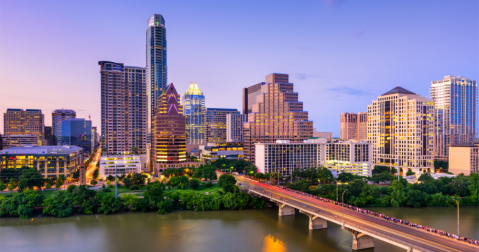In study done by RewardExpert, a company focused on providing tools, reviews and research for its users, they examine the best and worst places to start a new business.
The report gathers data from 177 metropolitan areas and uses 30 indicators to rank the locations. The study determines what places provide the best possibility of success and what areas bring the most challenges and obstacles. There are various factors impacting the rankings of cities. Some of these include housing costs, taxes and business incentives, demographics, and income and assets.
Here are three metropolitan areas RewardExpert ranked in their top 10.
Boston-Cambridge-Newton, Massachusetts
One the most populated metropolitan regions in the United States, the greater Boston area presents several advantages for small business startups. The area is in the 87th percentile when it comes to startup growth.
Although housing prices are high, attaining office space is more reasonably priced. The area also contains a high population of residents having a college degree (32 percent). With a startup survival percentage just under 55 percent, entrepreneurs have a more favorable chance to succeed compared to 98.8 percent of other metro areas in the study.
Lincoln, Nebraska
Lincoln, Nebraska is rich with educated residents. Roughly 25 percent of residents in the area have a bachelor’s or graduate degree, and 21 percent of people have either an associate degree or some college education. For job requirements, only 39 percent of jobs have education as a prerequisite, allowing an opportunity for this number to rise.
Rent in the Lincoln area is low, averaging $13.30 per square foot. Furthermore, the area has the highest five-year rate of survival for startups in the study. Although the number of startups is low (Lincoln is in the 27th percentile in total startups in the area), it still contains more small businesses than 80 percent of the other locations from the research done by RewardExpert.
Austin-Round Rock, Texas
The Austin area had a population growth of 2.67 percent per year from 2010 to 2017. This rate of growth is expected to remain at this level. Similar to the other two metropolitan areas mentioned, Austin comprises a high number of college-educated residents – around 45 percent of residents have some college education.
Austin scores high in both startup growth and survival rate of startups (89th percentile and 92nd percentile respectively). Businesses in Texas also benefit from its low-income tax rate. The one negative with the Austin area is with its high prices for space rentals, averaging around $22.97 per square foot.
To see the rest of the rankings, read RewardExpert’s full report.
Benetrends Financial offers various funding solutions for aspiring business owners throughout the United States. With dedicated representatives across the country, our employees are knowledgeable for all situations possible. Download “Innovative Funding Strategies for Entrepreneurs” to determine what funding options are available to you.

